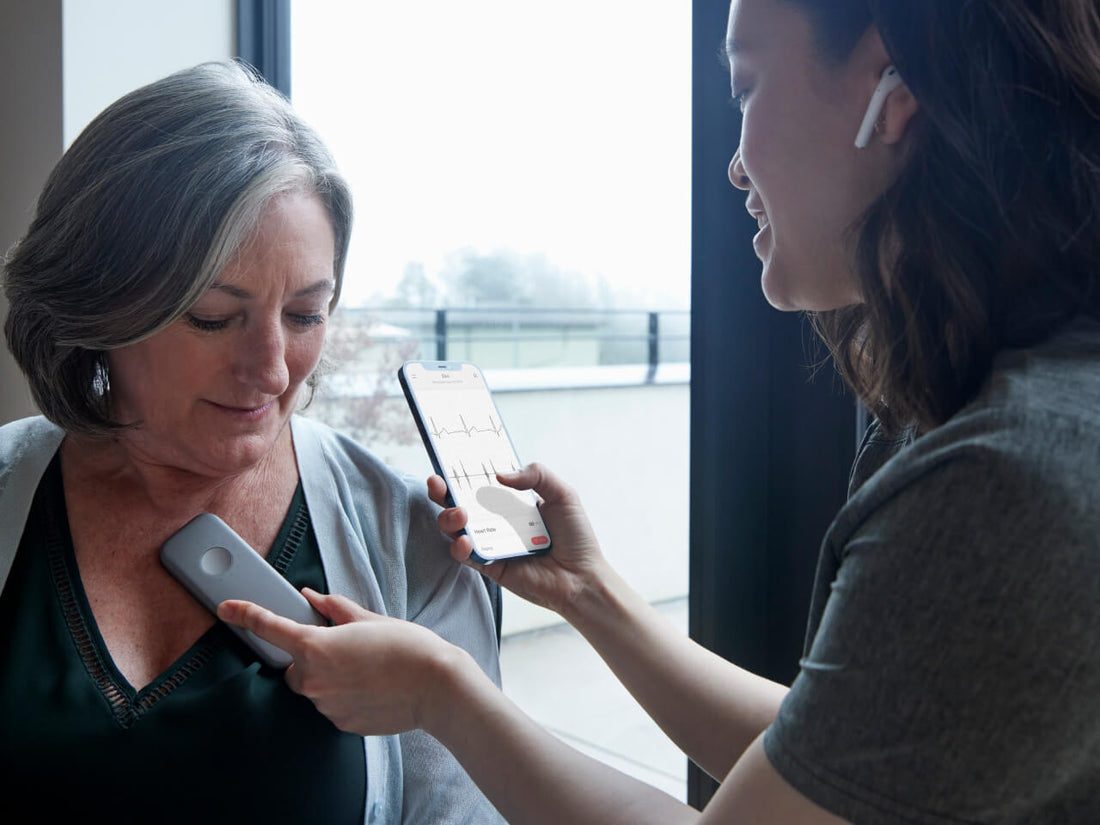Eko Awarded $2.7 Million SBIR Grant from NIH to Develop Pulmonary Hypertension AI

Oakland, California — Sept. 20, 2022 Eko, a digital health company applying machine learning in the fight against heart and lung disease, today announced that it was awarded a $2.7 million Small Business Innovation Research (SBIR) Direct Phase II grant by the National Institutes of Health's (NIH) Department of Health and Human Services (HHS). The grant will fund the development of a machine learning algorithm that detects and stratifies pulmonary hypertension (PH) using phonocardiogram (PCG) and electrocardiogram (ECG) data provided by Eko's smart stethoscopes.
Pulmonary hypertension is a severe condition that occurs when the pressure in the vessels that carry blood from the heart to the lungs is higher than normal, causing undo stress on the heart. PH affects up to 1% of the global population and is a marker of poor health outcomes. ¹ PH can cause premature disability, heart failure, and death. Unfortunately, delays of over two years frequently occur between the onset of symptoms and diagnosis of severe kinds of PH. ²
The gold standards for diagnosing PH are echocardiography and right heart catheterization, which are costly, invasive, and require a heart specialist. ECG-based AI models have been clinically proven to improve the diagnosis of PH but are challenging to deploy. ³ To address this challenge, Eko formed a research partnership with Lifespan Health System's Cardiovascular Institute to collect real-world PCG and ECG data using the Eko DUO ECG + Digital Stethoscope. This data will help develop an algorithm that can detect PH and stratify its severity. This easy-to-deploy early identification tool aims to diagnose PH earlier and more accurately, leading to beneficial interventions that can save patients' lives.
"The major goal of this study is to determine whether an Eko algorithm based on phonocardiography coupled with electrocardiography can identify the presence and severity of pulmonary hypertension when compared to the current gold standard, " said Dr. Gaurav Choudhary, Principal Investigator and Ruth and Paul Levinger Professor of Cardiology and Director of Cardiovascular Research at the Alpert Medical School of Brown University and Lifespan Cardiovascular Institute. "This machine learning algorithm has the potential to be a low cost, easily implementable, and sustainable medical technology that assists healthcare professionals in identifying more patients with pulmonary hypertension. "
This award marks Eko's fourth SBIR grant from the NIH, bringing their total funding to date from the NIH for cardiopulmonary machine learning development to $6 million. A previous $2.7M grant, awarded to the company in July of 2020, funded the collaborative work with Northwestern Medicine Bluhm Cardiovascular Institute to validate algorithms that help healthcare professionals (HCPs) identify pathologic heart murmurs and valvular heart disease (VHD) during routine office visits. That grant for VHD directly contributed to the FDA clearance and commercialization of Eko Murmur Analysis Software (EMAS) - the first and only machine learning algorithm to assist HCPs in identifying structural heart murmurs using a smart stethoscope.
"This SBIR grant is a testament to our focus on developing pioneering AI for early detection and management of cardiopulmonary diseases, " said Connor Landgraf, Co-founder & CEO of Eko. "Early detection and intervention play a critical role in preventing the progression of heart disease. Our focus is to make AI-powered tools cost-effective, easily accessible, and scalable that support clinical decision-making, so millions of patients will get information sooner that could extend their lives. This is how we change the standard of cardiac care. "
About Eko
Eko, a digital health company, is advancing how healthcare professionals detect and monitor heart and lung disease with its innovative suite of digital tools, patient and provider software, and AI-powered analysis. Its FDA-cleared platform is used by hundreds of thousands of healthcare professionals worldwide, allowing them to detect earlier and with higher accuracy, diagnose with more confidence, manage treatment effectively, and ultimately give their patients the best care possible. Eko is headquartered in Oakland, California, with over $125 million in funding from Highland Capital Partners, Questa Capital, Artis Ventures, DigiTx Partners, NTTVC, Morningside Technology Ventures Limited, Mayo Clinic, Sutter Health, and others. For more information visit www.ekohealth.com.
About Lifespan
Formed in 1994, Lifespan is a not-for-profit health system based in Providence, R.I. comprised of three teaching hospitals of The Warren Alpert Medical School of Brown University: Rhode Island Hospital and its Hasbro Children's Hospital; The Miriam Hospital; and Bradley Hospital, the nation's first psychiatric hospital for children; Newport Hospital, a community hospital offering a broad range of health services; Gateway Healthcare, the state's largest provider of community behavioral health care; Lifespan Physician Group, the largest multi-specialty practice in Rhode Island; and Coastal Medical, a primary care driven medical practice. Lifespan teaching hospitals are among the country's top recipients of research funding from the National Institutes of Health. The hospitals received $121 million in external research funding in fiscal 2021. All Lifespan-affiliated partners are charitable organizations that depend on support from the community to provide programs and services.
References
- Marc Humbert, et al. 2022 ESC/ERS Guidelines for the diagnosis and treatment of pulmonary hypertension: Developed by the task force for the diagnosis and treatment of pulmonary hypertension of the European Society of Cardiology (ESC) and the European Respiratory Society (ERS). Endorsed by the International Society for Heart and Lung Transplantation (ISHLT) and the European Reference Network on rare respiratory diseases (ERN-LUNG), European Heart Journal, ehac237, August 2022. https://doi.org/10.1093/eurheartj/ehac237
- Marc Humbert, et al. Pulmonary Arterial Hypertension in France Results from a National Registry, American Journal of Respiratory and Critical Care Medicine, Volume 173, Issue 9, February 2006. https://doi.org/10.1164/rccm.200510-1668OC
- Chih-Min Liu, MD, et al. Artificial Intelligence-Enabled Electrocardiogram Improves the Diagnosis and Prediction of Mortality in Patients With Pulmonary Hypertension, JACC: ASIA, Volume 2, Number 3, 2022. https://www.jacc.org/doi/epdf/10.1016/j.jacasi.2022.02.008
Lifespan Media Contact
Kelly Brennan
401-895-9912